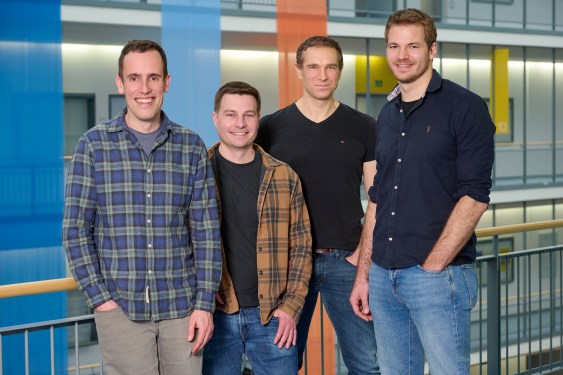AI Breakthrough: European Researcher Secures $13 Million for 3D Environment Startup

In the landscape of artificial intelligence, foundation models have marked a significant evolution, yet the realm of 3D online environments remains largely uncharted. While advancements such as OpenAI’s models and Stable Diffusion demonstrate remarkable capabilities in generating images, the 3D counterpart is still in its infancy.
Pioneering this frontier is Matthias Niessner, a prominent AI researcher known for his work in visual computing. Niessner has transitioned from academia at the Technical University of Munich to entrepreneurship with the founding of SpAItial, a startup dedicated to developing AI technologies for creating dynamic 3D spaces from text prompts. This transition comes with the announcement of a substantial seed funding round, totaling $13 million, led by Earlybird Venture Capital, accompanied by other investors like Speedinvest and notable angel investors.
What sets SpAItial apart is its focus on building not just any 3D environment, but interactive landscapes that mimic the physical laws of reality. Alongside Niessner, the technical team includes industry veterans such as Ricardo Martin-Brualla from Google’s 3D teleconferencing project and David Novotny, who spearheaded Meta’s text-to-3D initiatives. Their combined expertise positions SpAItial to tackle an emerging niche in the market, especially as competition grows with firms like Odyssey and World Labs, which have also ventured into this innovative space with significant investments.
Niessner has articulated a vision that extends beyond mere 3D modeling. He aspires to create environments where users can engage in realistic interactions, adding depth to the offerings in gaming, augmented reality, and even educational technologies. The anticipated market for photorealistic 3D environments is vast, with applications in gaming and construction amongst others, presenting what many see as a potential trillion-dollar opportunity.
As SpAItial seeks to carve a path in this competitive sector, Niessner is prioritizing early revenue generation through partnerships. He actively seeks collaborations with developers, providing access to their foundational models for diverse applications. This forward-thinking strategy aims to ensure that SpAItial can remain at the forefront of 3D innovation while managing operational costs effectively by focusing on quality over mass hiring.
The startup is gearing up to pioneer interactive experiences where basic inputs could yield complex outputs, like having a glass realistically shatter with just a few keystrokes. According to Niessner, this ambitious goal underscores the evolving capabilities of AI and its potential to democratize game development, allowing even a child to create their own virtual worlds in a fraction of the time it currently takes.
SpAItial stands at the cusp of a new chapter in AI underpinned 3D generation, as it navigates both the excitement of potential market impact and the challenges of commercialization. With plans to target achievable milestones in the development of 3D environments, SpAItial is set to explore uncharted territories, bringing their vision of interactive and immersive 3D spaces to fruition, potentially redefining how we interact with digital worlds.
The journey ahead is just beginning, and the implications of successful advancements within SpAItial’s framework could resonate across several industries, making it a characteristically promising venture in the AI domain.
